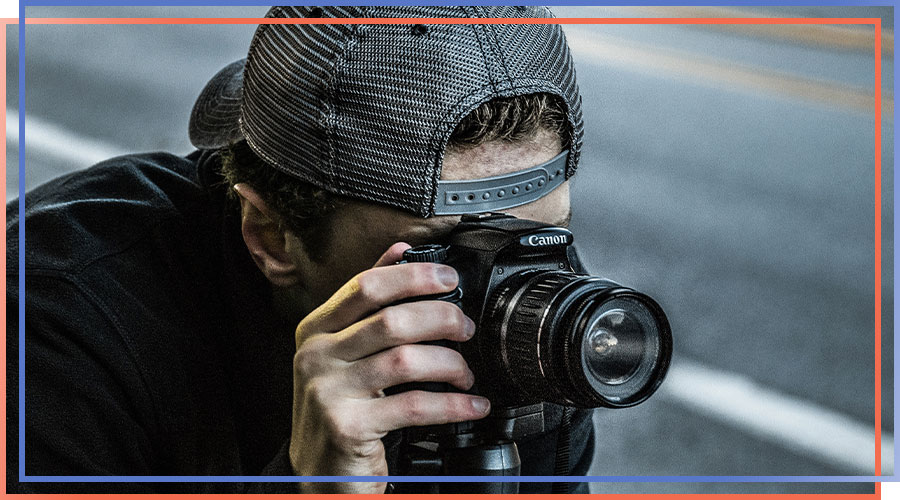Recommended Advice On Picking Best Private Investigators
Recommended Advice On Picking Best Private Investigators
Blog Article
What Can You Do To Ensure That A Private Investigator Is Licensed And Certified?
You can confirm a private investigator's certification and license by examining the licensing boards of the government. Here are some steps to follow to ensure that a private investigation's license and certification is valid. Check the Government Licensing Boards
Contact the licensing or regulatory agency for private investigators in the area where the investigator is located. Typically, you will get these details at the state level or province. Contact information can be found online or by contacting the local government.
Online Databases for licensing
Some jurisdictions provide online databases that allow people to check the licensing status of private investigators. You can search the databases online of the licensing body responsible for an investigator's agency or name.
Request Information on Licenses
Contact the private investigator's license information directly. Genuine investigators should be willing and able to provide details like their license number, date of expiration, and so on. This information must be confirmed with the licensing board.
Look up professional associations.
Many private investigators are members of professional associations that have their own codes of ethics and standards. Even though the membership of an organization does not confer official license, it could offer assurances of the professionalism of a private investigator. Examples include the National Association of Legal Investigators(NALI) and the Council of Private Investigators of Ontario(CPIO).
Contact State or Provincial Police
In some jurisdictions police agencies keep lists of certified private investigators. You can inquire about an investigator's licensing status by contacting the appropriate police department of the province or state.
Utilize online resources
A few online resources collect details about licensed professionals. Although they aren't being officially recognized, may provide the initial details as well as hyperlinks to databases that are official.
Verify Business Licensing
Verify the licensing of the private detective agency. It's important to check the legitimacy and credibility of the entire operation.
Contact Regulatory Authorities
If you are unsure or concerns, speak directly to the regulator that supervises private investigators within the jurisdiction. The licensing requirements can be confirmed by the regulatory authority.
Check information with a cross-checker
Check the information provided by the private investigator with the official records provided by the licensing board. Examine the specifics of the investigator, including their name, license number and expiration date.
Red Flags - Beware!
Beware if an agent refuses to divulge license information. The information they provide seems to be inconsistent or there are differences between what the agent says and their official records.
It is important to be aware that licensing and certification requirements vary depending on the jurisdiction. Thus, it is essential to become familiar with the local regulations and rules. Always prioritize working with certified and licensed professionals to ensure the quality and legitimacy of the investigative services. Follow the most popular Private investigators for website examples including hire a private investigator cost, private detective services, cheap private investigators near me, undercover private investigator, private investigation services, wv private investigator, private investigator nc, private detective companies, private detective, private investigator pi and more.
What Should I Be Aware Of About Surveillance Investigations
Surveillance investigations involve the systematic monitoring of people, places or activities in order to collect information, monitor behavior, or gather evidence. These investigations may be conducted to resolve legal issues and corporate concerns, as well as personal concerns. What you need to be aware of regarding surveillance investigations.
The goal of surveillance is diverse. It can be utilized to collect evidence for legal cases or to look into insurance fraud.
Legal and Ethical Aspects
Surveillance should adhere to both ethical and legal principles. Investigators must adhere to the privacy laws, avoid trespassing and make sure that their actions are in compliance with the applicable regulations.
The types of surveillance
Static surveillance Tracking an object or an area that is fixed from a stationary place.
Mobile Surveillance The following of the target or subject as they travel from one place to another.
Covert Surveillance conducting surveillance in a discreet manner without the subject's awareness.
Overt Surveillance Monitoring is in plain view, usually to monitor or deter, but with no cover.
Technical surveillance employs devices like cameras, GPS tracking, and other electronic devices to gather details.
Surveillance Equipment
Investigators employ a variety of tools and equipment to monitor which include binoculars and cameras (both still and video), GPS trackers, listening devices, and other specialized devices.
Cover and Discretion
The personnel in charge of surveillance must operate discreetly in order to avoid being detected. This may involve the use of vehicles that are not marked for concealment, or the wearing of disguises.
Observation Skills
Effective surveillance relies on the ability to watch. Investigators must pay careful attention to small details, be aware of any changes in behavior and accurately document their observations.
Strategy and planning
Plan and strategize carefully when conducting surveillance operations. Investigators have to plan routes ahead, identify the best vantage points and anticipate any issues.
Communication Skills
Effective communication is crucial for the surveillance teams. Clear, concise communication will ensure that your team remains well-informed and in sync.
Legal Authorization
In certain circumstances it is possible to obtain legal permission for surveillance. It is crucial to remember that this is the situation when surveillance activities are conducted by private investigators or by law enforcement.
Documentation
An accurate and thorough documentation of surveillance actions is essential. Investigators must maintain detailed records, including timestamps and descriptions of the activities they observe and other relevant information.
Adaptability
Surveillance situations can change rapidly and require investigators to be flexible and able to change their strategy on the spot.
Report Generation
Investigators usually write an extensive report that summarizes their results. These reports can either be used to back up a legal case or give clients an understanding of the results of surveillance.
Ethics
The conduct of investigators that is ethical is vital when conducting surveillance investigations. Operations must adhere to the boundaries of law and follow the ethical standards.
Safety Considerations
Security is an important concern for those who operate surveillance as well as that of their colleagues. This includes avoiding potentially dangerous situations, observing traffic laws, and adopting preventative measures to avoid conflicts.
Surveillance investigations require the use of a mixture of technology, skills, and ethical concerns. Surveillance can be carried out to obtain accurate information or achieve the objectives of the investigation irrespective of whether it is for corporate, legal, or personal purposes. See the top rated local Private investigators for more examples including investigator private, i need a private investigator, private investigation agency near me, private detective phoenix, business private investigator, requirements to be private investigator, private investigator washington, local private detectives, private investigator ct, qualifications for private investigator and more.